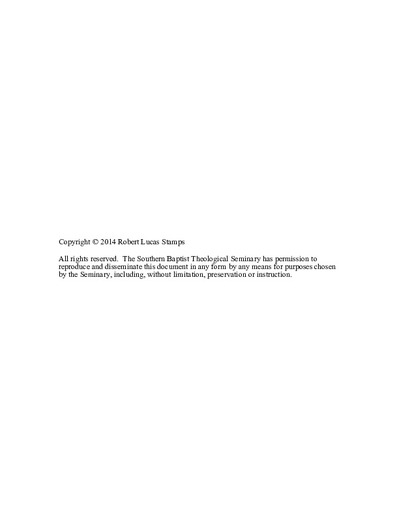"Thy Will Be Done": A Dogmatic Defense of Dyothelitism in Light of Recent Monothelite Proposals
Abstract
In the seventh century, the Third Council of Constantinople (680-81) denounced monothelitism, the belief that the incarnate Christ has only one will. Consequently, the dyothelite (two-wills) position would become accepted orthodoxy in all three branches of Christian theology: Eastern Orthodoxy, Roman Catholicism, and Protestantism. But in recent decades, several Christian philosophers and theologians have called into question the church’s conciliar position on the volitional life of Christ. For various reasons, these scholars believe that the one-will view better accounts for the unity of Christ's person and the coherency of his Incarnation. This dissertation analyzes three overlapping categories of contemporary monothelitism: abstractist Christologies, kenotic Christologies, and Spirit Christologies (chapter 2). It then seeks to retrieve the biblical and theological rationale for the dyothelite position. After surveying the emergence of the dyothelite consensus in the Patristic and medieval eras (chapter 3), special consideration is given to four Reformed theologians, who each defended the dyothelite position as a part of his broader Christological program: John Calvin, John Gill, William G. T. Shedd, and Thomas F. Torrance (chapter 4). It is concluded that the case for dyothelitism is cumulative and systematic in nature, taking into consideration not only the witnesses of Scripture and tradition, but also the implications of the debate for various loci of systematic theology (chapter 5).

